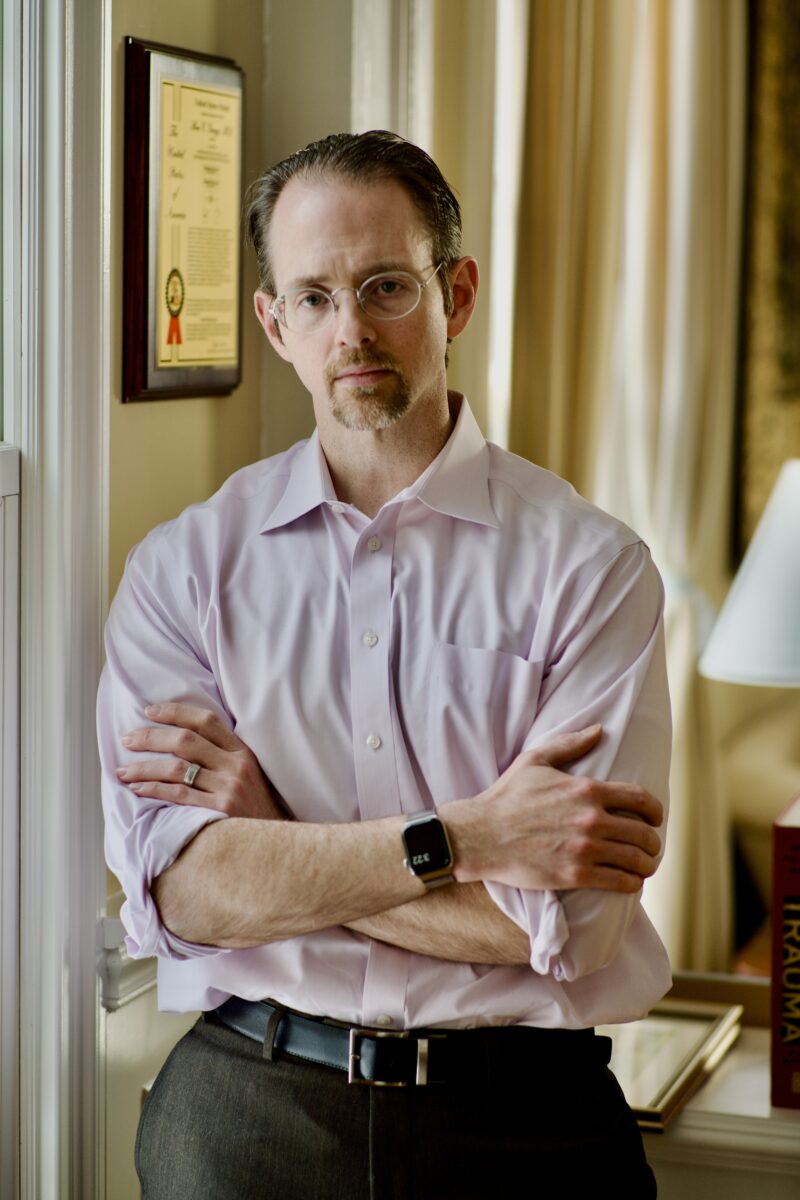Eye on Small Business: FallCall Solutions

During his first seven years practicing as a trauma surgeon, Trumbull, CT-based doctor, Shea Gregg, started to notice a disturbing trend in the patients he was caring for. The incidence of falls was increasing among older adults, who were presenting with more severe injuries. Additionally, many of them were unable to access immediate care because they refused to use traditionally stigmatizing medical alert devices. When he asked his older patients why they didn’t own an alert, the answer was usually the same, “They make me feel old,” or “they’re too expensive.”
The unfortunate result: Elder patients were presenting hours after their fall event with shock, kidney dysfunction and muscle breakdown, all of which could have been avoided with early access to emergency care.

When Dr. Gregg, who is a chair of surgery at St. Vincent’s Medical Center Hartford Healthcare in Bridgeport, CT, looked into the use of medical alerts among older adults, he found that only around 8% of those over 65 owned any kind of a system, despite their well-established and widespread availability. Given the embarrassment associated with them, the lack of uptake in the market and the cost, he thought there had to be a better way to enhance access to care and reduce cost. The soultion was making the mobile phone the centerpiece for an inclusive, monitored safety system.
Thus FallCall Solutions https://www.fallcall.com, Shea Gregg’s brainchild, was born – an app-based emergency system which he established in Trumbull in 2015.
FallCall currently has three apps on the market. ElderCheck Now, a simple wellness app that aims to combat social isolation and loneliness; FallCall Lite, launched in 2018, a medical alert app for Apple Watch, iPhone and Android, with 24/7 monitoring available by subscription; and last – at least for now – FallCall Detect, brought to market in 2021, which Gregg describes as the company’s flagship app.
Remarkably sophisticated, FallCall Detect’s patented fall-detection algorithm can differentiate between falls from standing in contrast to sitting, and triage the necessary level of help needed. Compatible with iPhone and Apple Watch, it has 24/7 help monitoring, integrated Apple Crash detection (the first in the world to integrate into a third-party app) and Kwikset door unlock integration, which unlocks doors when an ambulance is dispatched, mitigating any patient concerns of “forced entry”.
The service is monetized through monthly subscription for monitoring as well as pendant accessory sales and system integrations. Dr. Gregg said that all profits are reinvested in the business, where growth is doubling annually. He anticipates revenue in the hundreds of thousands this year.
Asked about the challenges the business has faced to date, Dr. Gregg pointed out that the traditional medical alert industry is a global, multibillion-dollar industry that has relied on a business model of selling integrated emergency response devices that yields recurrent monthly revenue. “When FallCall entered the market,” he said, very few believed that a downloadable app that does everything a traditional medical alert system does would disrupt the marketplace.” He added that six years later, FallCall had thousands of users worldwide and was continuing to gain popularity amongst an aging but increasingly more tech savvy demographic, less enamored by the medical alert hardware of yesterday.
And he believes that traditional medical alert hardware will eventually be replaced by smart safety solutions that run through mobile technology. “FallCall is excited to be one of the few companies in the world that embraces this future and has built the infrastructure to be a part of this new, innovative medical alert industry,” he said.